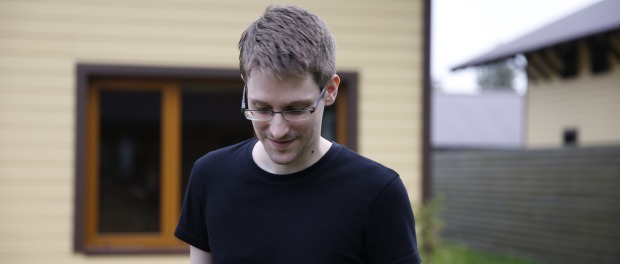Revealing Big Brother’s Secrets with Citizenfour
Citizenfour is a chilling new documentary which chronicles the transformation of National Security Agency whistleblower Edward Snowden from just another government employee to one of the most controversial figures in the world. The film was produced, shot, and directed by Laura Poitras, a talented documentary filmmaker with an impressive resume which includes winning a Peabody Award as well as receiving Oscar and Emmy Award nominations. Citizenfour is the third and final film in Poitras’ trilogy of post- 9/11 documentaries focusing on how U.S. policies have changed following the World Trade Center terrorist attacks. Other films in the series include My Country, My Country (2006) and The Oath (2010).
Citizenfour is filled with an astonishing array of facts and figures guaranteed to leave viewers with a profound sense of paranoia and perhaps instill in them a need to think twice before accessing their e-mail account, cell phone, or credit cards. The film addresses issues such as personal freedom and how measures taken by the American government in regards to its top secret surveillance practices are infringing upon the rights of private citizens. One of the most interesting notions in Citizenfour is how what was once referred to as liberty and freedom is now called privacy. The film makes the case that when someone’s privacy is violated by invasive and/or illegal state policies the result is a dangerous breakdown in democratic and basic human rights.
Citizenfour documents the high security measures that Poitras and journalist Glenn Greenwald had to undertake in order to interview Edward Snowden while he took refuge in a Hong Kong hotel room. The film presents Snowden not as the hero or devil stereotype so often presented in the mainstream media but rather as a real flesh and blood human being. By using behind the scenes footage Poitras is able to provide viewers with a sense of what Edward Snowden (or Ed as his friends call him) is really like and get a true sense of the motivations behind his controversial actions. During hours of interviews with Greenwald and British journalist Ewen MacAskill the 29-year-old former NSA contractor reveals top secret policies regarding the policies and technical capabilities of his former employer. Snowden also talks about his family, girlfriend, and his ideological beliefs in terms of personal freedom and the role of government. Whether filmgoers love him
or hate him it’s refreshing to see a person willing to sacrifice everything for their beliefs rather than simply for superficial motivations like fame or money.
Citizenfour explores the consequences of the U.S. government and National Security Agency spying on their own citizens as well as other influential figures and organizations. Snowden is able to provide classified documents and first hand testimony in order to demonstrate the American government’s increased capacity to access information and personal communications such as e-mail passwords, Google searches, credit card info, and text messages.
Director Laura Poitras does an effective job at giving Citizenfour a narrative structure which brings the film full circle. The documentary begins with Snowden sending Poitras encrypted e-mails which represent the highest advancements in communication. Conversely it ends with Snowden and Glenn Greenwald being so concerned about being monitored that they resort to communicating by way of scribbling on pieces of paper. This sequence seems to lend a whole new meaning to the phrase, “everything that’s old is new again”.
Citizenfour is an eye opening film and a must see for anyone concerned with the future of democracy, the role of government, and the problem of balancing personal privacy with national security.
Citizenfour is in theatres now.







